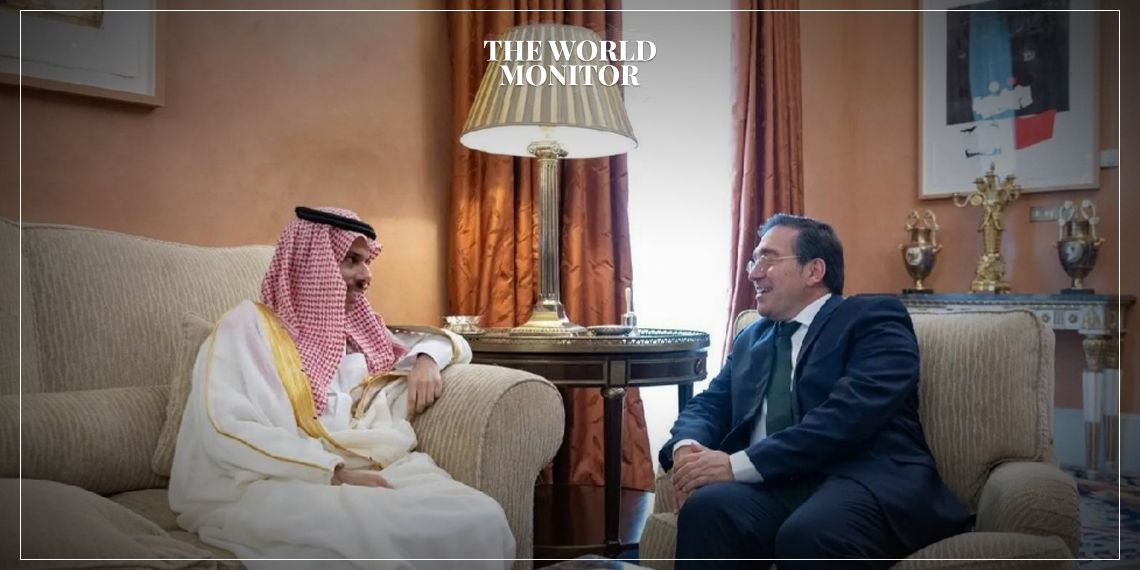Saudi Arabia’s Foreign Minister, Prince Faisal bin Farhan Al Saud, met with his Spanish counterpart, José Manuel Albares, to discuss the situation in Gaza and steps toward implementing the two-state solution.
The meeting took place in Madrid during a ministerial gathering aimed at coordinating efforts for Gaza and preparing for a high-level event on the sidelines of the 79th session of the United Nations General Assembly.
The two ministers reviewed the strong bilateral relations between Saudi Arabia and Spain, exploring ways to enhance cooperation across various sectors.
They also discussed regional and global developments, particularly the ongoing conflict in Gaza and the international efforts to address it.
The situation in Gaza remains a focal point of international diplomacy, particularly regarding the Israeli-Palestinian conflict.
The two-state solution, which envisions an independent Palestinian state alongside Israel, has been a long-standing goal of international peace efforts.
However, repeated cycles of violence, including recent escalations in Gaza, have hindered progress.
Saudi Arabia, a key player in Middle Eastern diplomacy, has consistently advocated for the two-state solution as part of its broader support for Palestinian statehood.
This aligns with the 2002 Arab Peace Initiative, spearheaded by Saudi Arabia, which calls for normalization of relations between Arab countries and Israel in exchange for the latter’s withdrawal from occupied territories and the establishment of a Palestinian state.
Spain, as part of the European Union, has similarly supported the two-state solution and called for renewed peace talks. The country has actively participated in diplomatic efforts to address the humanitarian crisis in Gaza, urging for a ceasefire and resumption of negotiations.
The high-level event at the United Nations is expected to bring further attention to the issue, as global leaders work toward de-escalation and a sustainable resolution to the conflict. Both Saudi Arabia and Spain play crucial roles in shaping international responses, with their diplomatic influence helping to pave the way for future peace efforts.






